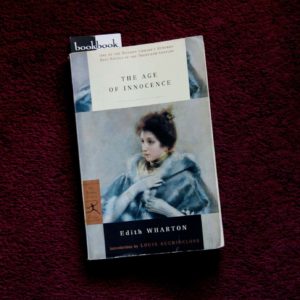Born into extremely poor conditions, Lincoln’s mother died in 1818; he was 9 years old. She died in a doorless, windowless, floor-less cabin in a settlement at the Buckhorn Valley of Indiana——a “desolate forest.” Nancy Hanks’ death was caused by the “milk sick.” Though the cause of the fatal illness was unknown in Nancy’s time, it was later found to be caused by the white snakeroot. A poisonous root that was sometimes consumed by cattle. In this way the milk was contaminated and made its drinkers seriously ill, and often die. Nancy, like Tom Lincoln, was an illiterate. Abe’s father, Carnegie writes,”was a rover, a drifter, a ne’er-do-well, floating about from one place to another, taking any kind of job he could get when hunger drove him to it.” And from the description of their home life, Nancy’s marriage situation was not a comfortable one. A year after his wife’s death Tom married for the second time, her name was Sarah.
Lincoln’s education was achieved mostly through his own efforts . At “fifteen he knew his alphabet and could read a little but with difficulty. He could not write at all.” Then in the autumn of 1824 “a wandering backwoods pedagogue…started a school” in their parts of the woods and “Lincoln and his sister walked four miles through the forests night and morning, to study under the new teacher.” Lincoln had a natural appetite for learning and went out of his way——working around many obstacles, to learn to read and write well. What set him apart was not only his hunger for knowledge but his sensitivity to nature and his fellow human. From the beginning it was obvious that Abe cared about nature and did not take life for granted. Perhaps all those years growing up in the forests of Buckhorn Valley brought him similar insights as Thoreau, who insisted that we are “part and parcel of nature,” not separated; just nature in nature. Lincoln’s first essay, Carnegie writes “was inspired by the cruel sports of his playmates” who “used to catch terrapins and put burning coals on their backs.” Lincoln, feeling for the little turtles would beg his mates to stop and would go about kicking away the coals with his shoeless feet. Not surprisingly, his first essay was a “plea for mercy to animals.” This alone says a lot about the character of the young Abe Lincoln who would one day become, for a while, a rather unpopular president but a hero in his death.

Lincoln loved poetry, and perhaps because of the difficulties of his own life, found pleasure in melancholic verses. Carnegie notes that “Shakespeare awed him, but Bobby Burns won his love and sympathy.” This was because “he felt a kinship with Burns” who had been born into poverty and grew up in a cabin probably not so different from his early home. He appreciated the fact that Burns had not been an ordinary plowboy, but one “to whom the plowing up of the nest of a field-mouse was a tiny tragedy, an event worthy of being caught up and immortalized in a poem.” And so in the poetry of Burns and Shakespeare, Lincoln found beauty worth appreciating, and I imagine, relatable, too. Robert Burns, or Bobby as Carnegie refers to him, perhaps to emphasize Lincoln’s affinity for his work, was a Scottish poet described as one well versed in the language of the heart. Obviously, a reason why these poets were favorites of Lincoln was because they served him well as sources of inspiration. For “neither Shakespeare nor Burns had gone to college. Neither of them had had much more schooling and education” like Lincoln. If a lack of formal education did not prevent Shakespeare and Burns from becoming great renown poets, then Lincoln probably envisioned there was hope for him too.
Lincoln’s love life was rather tragic. His first love was Ann Rutledge, the daughter of James Rutledge, a Southerner. Carnegie narrates that “she was only nineteen when Lincoln met her——a beautiful girl with blue eyes and auburn hair. Despite the fact that she was already engaged to the richest merchant in town, Lincoln fell in love with her.” Lincoln was four years her senior and though she was from a better established family and promised to another man, things looked like they were going to work in his favor when Ann’s fiancé left town and stopped writing. He grasped the opportunity and started courting Ann. The two are said to have reached an agreement to marry, but before that, Lincoln wanted to study to become a lawyer: to be worthy of Ann. Unfortunately, she died before they could even officially engage and this broke his heart. He was, forever, saddened.
Lincoln’s marriage to Mary Todd, the daughter of a wealthy slave-holding family from Kentucky, was heartbreaking to read. Bitter, insecure, and full of vile, Mrs. Lincoln made Mr. Lincoln’s life unnecessarily difficult. Yet his ability to endure her foul treatment of him and deal with all of it in such consistent patience is incredible. On the other hand, he knew marrying Todd would make him unhappy. Just before his wedding with Todd, he is said to have described his marrying as his trip to hell. Carnegie insists that Todd had been determined to marry a man who would become the president of the United States. She thought this to be her destiny and would not settle for less. At first Todd had set eyes on Stephen A. Douglas, the candidate for the Northern wing of the Democratic party; Lincoln was the Republican candidate. But Douglas did not feel strongly for her, and attempting to make him jealous, Mary went with Lincoln. At first, he felt lucky to be chosen. Mary was coming from a monied family, and with her help he would have a better chance in politics. But he soon realized that they were different people and wrong for one another. He tried to break his engagement to Todd, and then later stood her up at their first wedding. But Todd was relentless and successfully got Lincoln to marry her in a second marriage ceremony. “James Gourley,” writes Carnegie, ” who lived next door [to the Lincoln’s] for sixteen years, declared that Mrs. Lincoln “had the devil in her,” that she had hallucinations and carried on like a crazy woman, weeping and wailing until she could be heard all over the neighborhood, demanding that someone guard the premises, swearing that some rough character was going to attack her.” She nagged her husband so often and so much that he did not like to go home to her. Sometimes he spent hours after work in his office or took long walks to delay his going home. Carnegie’s account of the Lincoln’s household was that it saw many servants coming then packing up shortly to vacate the premises. Mrs. Lincoln made for an impossible mistress.
Yet Carnegie maintains, to the credit of Mary Todd, that “if Lincoln had married Ann Rutledge, in all probability he would have been happy, but he would not have been President. He was slow in thought and movement, and she was not the type that would have driven him to achieve political distinction.” But Mary Todd who was “obsessed with an undying determination to live in the White House, was no sooner married to Lincoln than she had him out running for the Whig nomination for congress.” So in some ways, Lincoln owes his presidency to his domineering wife. The bad came with the good. Todd was after all a very ambitious woman who wanted a role in high society. She wished to be revered and treated with all due respect but failed, with her awful temperament, to get people to treat her the way she wished. Yet she managed to help, even if through incessant pushing and nagging, Lincoln to to the White House. She wanted to be the wife of a president and she made it happen.
Before he met Ann, Lincoln worked a river job, for a short time, transporting goods along the Mississippi river. It was through this phase in his life that he encountered in ” New Orleans, for the first time…the true horrors of human slavery. He saw “negroes in chains——whipped and scourged.” And to this he said,” By God, boys, [ perhaps addressing his half brother and cousins who were his associates] let’s get away from this. If ever I get a chance to hit that thing [meaning slavery], I’ll hit it hard.” Lincoln meant it. Many of his speeches in his journey to the White House professed his belief that slavery was an abominable evil that must be put to a stop. He was mocked by his opponents, Douglas in particular, as wanting white people to marry their slaves.
During his presidency, however, it is interesting to note that Lincoln’s first goal behind the Civil War was for the purpose of keeping the Union together. But when the South started working on alignments with Europe to gain their assistance against the Union. He realized that if the Confederate South should succeed in gaining Europe’s assistance, the Union’s mission would be doomed. In order to dissuade Europe from joining forces with the Confederate South, Lincoln redefined the war as a means to the Proclamation of Emancipation. This made Europe think differently of the war; it was no longer “a bloody quarrel over the preservation of a Union that meant nothing to them” but rather “a holy crusade to destroy slavery.” Lincoln knew that slavery was unpopular in Europe, especially owning to the widely successful anti-slavery novel then in circulation, Harriet Beecher Stowe’s Uncle Tom’s Cabin. And so the Union’s mission became not only for a united America but also for the abolition of slavery.
By the time of his assassinated on April 15, 1865, Lincoln had lived through the burials of several significant people in his life; his mother, his father, Ann, and two of his three sons. I suppose it is fair to say that the man knew something about suffering. He also knew a lot about rejection and failure. Until his presidency, which came about as something of a miracle, Lincoln had met failure after failure in his political career. As a lawyer he made very little money because he refused to charge his clients the going rates. Sometimes he battered for his services. Of course, this made Mrs. Lincoln furious. But in matters that he felt strongly, Lincoln stood his ground. Yet from the descriptions of his demeanor, he felt the weight of the pain that life had too generously served him. Lincoln’s philosophy on life is decipherable through his favorite poems. Many of which he had memorized and recited not only to friends but to himself. Like the first verse of a poem by William Knox:
Oh, why should the spirit of mortal be proud?Like a swift-fleeting meteor, a fast-flying cloud,A flash of the lightning, a break of the wave,he passes from life to his rest in the grave.
drop of blood drawn with the lash shall be paid by


